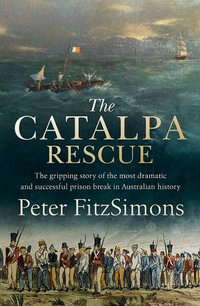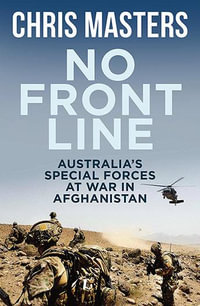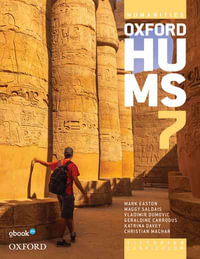
Sorry, we are not able to source the book you are looking for right now.
We did a search for other books with a similar title, however there were no matches. You can try selecting from a similar category, click on the author's name, or use the search box above to find your book.
Bombing, military casualties, territorial loss, economic collapse and the processes of denazification gave Germans a deep sense of their own victimhood, which would become central to how they emerged from the trauma of total defeat, turned their backs on the Third Reich and its crimes, and focused on a transition to relative peace. Germany's return to humanity and prosperity is the hinge on which Europe's twentieth century turned. For years we have concentrated on how Europe slid into tyranny, violence, war and genocide; this book describes how humanity began to get back out.
About the Author
Richard Bessel is Professor of Twentieth Century History at the University of York. He works on the social and political history of modern Germany, the aftermath of the two world wars and the history of policing. He is a member of the Editorial Boards of German History and History Today. His books include Political Violence and the Rise of Nazism, Germany after the First World War and Nazism and War.
INTRODUCTION: TO HELL AND BACK
The mood of catastrophe - for us wearers of the star [of David], nine-tenths joyful, one-tenth fearful - but even when it comes to fear people say 'Better a terrible end [than no end at all]! - is growing stronger. Victor Klemperer
Now I hope that everything goes back to the way it was. It is wonderful when one can lie down in bed in the evening in peace. Hopefully the war will soon be over, the soldiers will be able to come home. Gerda J.
At midnight on New Year's Eve, as 1945 began, German radio broadcast Adolf Hitler's last New Year's message to the German people. To a nation that faced certain defeat, he yet again asserted his faith in ultimate victory, concluding with his 'unshakeable belief that the hour is near in which victory finally will come to that which is the most worthy of it: the Greater German Reich'.3 Popular reactions to Hitler's message were astonishingly positive, although laced with disappointment that the leader had not offered any details of how victory might be achieved, whether through new weapons or new offensives, or how the Allied bombing campaign which was causing such destruction to Germany's cities might be halted.4 Less than two weeks later, on 12 January, the great Soviet offensive began, and sealed the fate of the 'Thousand-Year Reich'. By the end of January, the Wehrmacht had suffered its highest ever monthly total of casualties as the numbers of German military dead reached their peak of over 450,000 - far in excess of the 185,000 Wehrmacht members who died in January 1943, the month of the defeat at Stalingrad.5 Never before had so many people been killed in Germany in so short a time. This bloodbath opened the year 1945; with it, what Marlis Steinert has described as Germans' 'last flicker of hope' arising from Hitler's New Year's message was extinguished.
In late March 1945 an intelligence report, apparently drafted by the Security Service of the SS, described German popular opinion in the blackest of terms. The last remaining, desperate hopes of avoiding defeat had evaporated. The collapse of the German fronts in east and west, the Allied bombing, the 'chaotic transport disarray', had led to a 'general hopelessness':
A large proportion of the population has become accustomed to living only day-to-day. They make the most of any comforts of life that present themselves. Any otherwise trivial excuse is used to justify drinking up the last bottle which originally was saved for the victory celebration, for the end of the blackout, for the return of a husband or son. Many are getting used to the idea of making an end of it all. Everywhere there is great demand for poison, for a pistol and other means of ending one's life. Suicides due to real depression about the catastrophe which is expected with certainty are an everyday occurrence. Numerous conversations with families, with relatives, friends and acquaintances are dominated by planning how one also could get by under enemy occupation. Savings are being set aside, hiding places are being sought out. Especially the elderly torment themselves day and night with sombre thoughts and no longer are able to sleep for worry. Things that no one dared to imagine only a few weeks previously are today the subject of open discussions in public-transport vehicles and among complete strangers.6
Six weeks later those 'things that no one dared to imagine only a few weeks previously' had come to pass: The Wehrmacht surrendered unconditionally and Allied armies occupied the whole of Germany. Instead of the victory in which Hitler had asserted his 'unshakeable belief', Germans experienced total defeat. Never before in modern world history had a country been defeated so thoroughly as was Nazi Germany. At the end of the Nazi 'assault on the roots of civilization',7 Germany lay in ruins - politically, socially, economically and morally.
For decades, historians have examined in impressive detail the catastrophic course of modern German history in order to explain how a developed and cultured nation could abandon democratic and civilized values, launch brutal wars of imperialist plunder and racist violence, engage in organized campaigns of mass murder unparalleled in human history, and carry the barbarous Nazi programme through to a catastrophic and suicidal end. In short, we have been concerned, rightly, to explain how humanity in central Europe slid into the abyss of tyranny, violence, war and genocide. However, that is far from the whole story, and in recent years increasing attention has been paid to the end of Nazi Germany as well as its beginning. For as important as it is to understand how people got themselves into the horrors of Nazism and war, it is at least as important to understand how they emerged from the other side, to understand how they managed to get out.
The hole from which the Germans had to climb in 1945 was incredibly deep. After Nazi Germany had subjected people across the European continent to horrific violence, particularly in the closing stages of the war the Germans themselves were subjected to deadly violence on a massive scale. Germany had been the target of a bombing campaign which was unprecedented in its destructive power, reached its peak in early 1945 and claimed the lives of nearly half a million people.8 The bombing, the evacuations from cities endangered by the Allied air assault, the westward flight of millions of Germans ahead of the Red Army and the subsequent expulsion of millions more following the Wehrmacht's surrender, left at least a quarter of the German population homeless. The Nazi concentration camp empire had degenerated into a series of collection points in which almost no provision was made for the needs or indeed survival of prisoners herded into them, with predictably horrific consequences. The Nazi political system collapsed, and what had remained of it in the spring of 1945 was abolished by the Allied occupying powers. Millions of German soldiers had been killed or wounded, and millions more were in Allied prisoner-of-war camps. The country's transport system was largely at a standstill; electricity and gas supplies were cut; telecommunications systems no longer functioned; water and sewerage systems were severely damaged; food supply was precarious and many people faced the prospect of severe malnutrition; disease was rampant and medical services were severely disrupted. Far from being Europe's masters, Germans now were ruled by occupying armies. A people which had been schooled in racism and conquered a continent, subjecting its inhabitants to murderous violence on a massive scale, now had to make the transition to life in postwar society in the most inauspicious circumstances.
That transition forms the hinge on which the history of twentieth-century Germany and Europe turns: from the most terrible outburst of human violence in world history to the beginning of a period characterized (at least in Western Europe) by peace and prosperity. After the experience of destruction, defeat, disease, death and destitution on an unimaginable scale, Germans took their first steps along a path that would lead to stable democratic government, prosperity beyond the dreams of most people before the Second World War, and peaceful civilized behaviour.
Germany did indeed go to hell and, in 1945, began to come back; the peaceful second half of the twentieth century rested on the ashes of the first.
How is this remarkable transition - the turning point of Europe's twentieth century as well as of the lives of millions of individuals - to be explained? The search for an answer to this question - and the central argument of this book - needs to begin with the enormity of the violence which overwhelmed Germany during the last year of the war.9 At the beginning of 1945 Germany witnessed the greatest killing frenzy that the world has ever seen, as military casualties reached their peak, the Allied bombing campaign was at its most intense, and millions of Germans fled westwards ahead of the Red Army. The violence which Germans now experienced in their daily lives was a profound shock, which pushed into the background their memories of the earlier phases of the war when they had the upper hand and were more often the perpetrators of violence than its victims. The effects of the shock of violence, of the trauma which 1945 signified for millions of Germans, can hardly be overestimated.
This has to be understood in the context of the rise and fall of the Nazi racial state. The people's shock at becoming the victims of violence on so massive a scale and of total military defeat was all the greater after the experience of a dictatorship which had propagated German racial superiority and been so stunningly successful in subjugating others. Popular reactions to what occurred in 1945, as well as the views of those still running the Nazi regime as it crumbled, had been conditioned by tremendous faith in the leader, widespread complicity in the crimes of the regime (from which millions of people had profited directly and indirectly),10 and broad agreement with many of the ideological assumptions that had underpinned the regime: that democratic government in the form of the Weimar 'system' had been a chaotic failure; that Germans and their culture were superior to other peoples and their cultures, especially those of eastern Europeans; that - in the words of a propaganda volume published just after the Wehrmacht's 1939 campaign in Poland - Germany's fighting forces consisted of the 'soldiers of the best army in the world';11 and that Germans could share in what Friedrich Meinecke, doyen of the German historical profession and later founding rector of the Free University in Berlin, had described to a colleague just after the conquest of France in 1940 as his 'joy, admiration and pride at this army'.12 The rapid economic recovery and stunning diplomatic successes of the 1930s, the astonishing military triumphs during the first half the war, and the fact that Germans had been able to eat relatively well during the conflict thanks to their brutal exploitation of a conquered continent, made the complete military collapse and extreme violence visited upon them in 1945 - the sudden transition from power to impotence - all the more devastating. As a consequence, remarkably little remained of a movement and an ideology which had held Germany in its grip for twelve years.
Thus, in 1945 Germans were transformed from active protagonists to passive observers of their fate. People who had become accustomed to ruling others now found themselves powerless and subject to the rule of foreign powers. The occupation and administration of Germany by the Allies, with important decisions taken out of German hands, were central to the remarkable shift in German mentalities that occurred in 1945. Their emergence from Nazism and war into a peaceful and prosperous postwar world had much to do with the fact that for years after May 1945 the Germans were not allowed to govern themselves. This formed a striking contrast with what had occurred after the armistice of November 1918. Then, the Germans had been defeated militarily, but unfortunately they were not made impotent. They were not stripped of their state, their army, their political institutions; their country - except for relatively small amounts of territory in the east and west - was not occupied by foreign armies; and they still were able to govern themselves, which they proceeded to do remarkably badly. After their unconditional surrender in May 1945 and the occupation of the entire country by foreign armed forces, however, things were very different: little opportunity remained for Germans actively to shape their future beyond the day-to-day struggle for survival.
The violence and upheaval of the last months of war and the first months of occupation left Germans disorientated in other regards as well. The fixed points in the lives of millions of people had been obliterated, both physically and emotionally. Altogether roughly 26 million Germans had lost their homes, whether through bombing, flight, or expulsion. Those who still possessed a home often had to endure severe overcrowding or to inhabit buildings which were severely damaged. This meant more than the loss of a physical environment, with all the practical problems that signified; it also signified the loss of familiar points of reference - of community, of social and cultural networks. It meant, as Fritz Stern expressed it in a lecture given in Berlin in 1995 on 'lost Heimat', not simply 'the loss of possessions, of one's livelihood' but, more importantly, 'the human-spiritual loss' of safety and security, of something that 'also puts its stamp on the largely "unconscious self-confidence" or - to use the modern expression - on identity'.13
The cataclysm of 1945 shook the 'unconscious self-confidence' of millions of Germans. Collective identities, social solidarities and the sense of place and security were undermined. The terror of the Nazi regime, which had been aimed not just against others but, increasingly, against Germans themselves during the last months of the war in order to prevent the crumbling of resistance to the Allies and any challenges to the dying regime, made collective action all but impossible. The destruction of infrastructure, which paralysed transport, post and telecommunications, increasingly restricted people's sphere of activity to their own immediate vicinity. The smashing of Germany's cities and the movement of millions of citizens from their homes destroyed communities, occupational connections and social networks. Everyday problems, the scramble to find food and shelter, were overwhelming. Family connections were broken, with millions of men dead, missing or in prisoner-of-war camps, and with millions of survivors left desperately searching for their relatives.
It was not only what actually happened to Germans but also how they reacted to their predicament that corroded collective bonds and 'unconscious self-confidence'. The loss of family, friends, homes, limbs and years of their lives, in the service of a criminal and lost cause, left behind an ocean of bitterness. At the same time, the fact that so many people had been complicit in, and profited from, the actions of a racist and murderous regime, and were in danger of being called to account by the victorious Allies, raised the question of guilt and the problem of having to deal with one's own often chequered past. And the imposition of Allied rule brought with it new insecurities, ranging from fear of violence by occupation soldiers to fear of arrest by occupation authorities. Altogether, the German population was battered physically, economically and psychologically to an extent unprecedented in living memory.
How individuals experienced the events of 1945 depended to a great extent on their age at the time. Of course, the bombing, the privations, the flight and expulsion from the east, and the Allied occupation affected the young as well as the old; those born and socialized under the Kaiser as well as those born during the Weimar period and socialized under the Nazis, and those who still were children when the war ended. Yet the place of 1945 in individual biographies differed significantly depending upon whether one had been born in, say, 1880, 1900, 1920 or 1935.
Those born in the 1880s could view the cataclysm of 1945 against the background of a childhood and socialization in the relatively stable and prosperous Wilhelmine Empire, a seemingly peaceful and secure world which had been shattered by the First World War, defeat in 1918 and the crises of the Weimar Republic, followed by the dizzying hopes and terrible catastrophes of Nazi rule. This was a cohort who, in a more stable world, would have been looking forward to a peaceful retirement in 1945. Those born in the years after 1900 had a rather different perspective. They included the men who constituted the 'generation of the unbound',14 those who had been able to take advantage of the extraordinary opportunities offered by the Third Reich and to make astonishing careers in murder and war. They were people who, in more settled times, would have been entering into positions of responsibility and authority during the late 1940s. The experiences and perspectives of those born around 1920, in the aftermath of the First World War, were different yet again. These were the people who suffered most acutely as a result of Nazism and war. This group consisted of birth cohorts half of whose male members would not survive their twenties and whose female members consequently stood relatively poor chances of finding a male life partner after the dust settled in 1945. Born in the crisis-ridden Weimar Republic and coming of age under Hitler, this was the generation for whose survivors the shock of 1945 was perhaps most severe - people who were robbed of their young-adult years, whether due to military service, captivity as prisoners of war, war-related disability, or the absence of life partners.
Finally, those born in the mid-to-late 1930s experienced the war as children; their childhood world and earliest memories often consisted of bombing, homelessness, flight and fear.15 This was the generation of Manfred Uschner, born in 1937 and during the 1980s a leading Socialist Unity Party functionary (as Private Secretary of the Politburo member Hermann Axen) in the German Democratic Republic. As a seven-year-old Uschner had witnessed his grandmother being burned alive in the bombing of Magdeburg on 16 January 1945, an experience which, he asserted, had 'burned itself into us for ever' and about which nearly a half a century later he would write: 'I have never shaken loose from it.'16 For older Germans, the experience of 1945 was profoundly affected by memories of 1918. Frequent comparisons were made between what was happening at the end of the Second World War and what had happened at the end of the First. In the last weeks of the Second World War many Germans were convinced that - as one muttered in an air-raid shelter in Berlin at the end of March 1945 - 'if our soldiers were as clever as in 1918, the war already would be over'.17 And after it was over, many no doubt shared the opinion expressed in June 1946 by Dr Rudolf Paul, Minister-President of Thuringia and himself born in 1893, that 'the collapse of 9 November 1918 was a tempest in a teacup compared with the typhoon of the year 1945'.18 The scale and intensity of the violence, the extent of the destruction, and the totality of the defeat made 1945 very different from 1918.
The 'typhoon' of 1945 was no freak storm. It was the consequence of the determination of the Nazi leadership to ensure that there would be no repeat of the armistice that had ended Germany's First World War. This time, they vowed, Germany would fight to the bitter end. It did not matter that there was no hope of avoiding catastrophic defeat: the final bloody battles would set the stage for future struggle; the greater the destruction the greater would be the inspiration for future generations. However, rather than provide inspiration for the next war, the 'typhoon' of 1945 did just the opposite: instead of inspiring a new generation of warriors, it left a population remarkably disposed towards pacifism. The shock of the cataclysm in 1945 made possible a transition very different than that which followed the First World War. The story of that shock and that transition is the subject of this book.
© Richard Bessel 2009
ISBN: 9781416526193
ISBN-10: 1416526196
Published: 1st October 2010
Format: Paperback
Language: English
Number of Pages: 544
Audience: General Adult
Publisher: Simon & Schuster UK
Country of Publication: GB
Dimensions (cm): 19.8 x 12.9 x 3.4
Weight (kg): 0.41
Shipping
| Standard Shipping | Express Shipping | |
|---|---|---|
| Metro postcodes: | $9.99 | $14.95 |
| Regional postcodes: | $9.99 | $14.95 |
| Rural postcodes: | $9.99 | $14.95 |
How to return your order
At Booktopia, we offer hassle-free returns in accordance with our returns policy. If you wish to return an item, please get in touch with Booktopia Customer Care.
Additional postage charges may be applicable.
Defective items
If there is a problem with any of the items received for your order then the Booktopia Customer Care team is ready to assist you.
For more info please visit our Help Centre.
You Can Find This Book In

BOXING DAY
RRP $27.99
$11.25
OFF
This product is categorised by
- Non-FictionHistoryRegional & National HistoryEuropean History
- Non-FictionHistoryGeneral & World History
- Non-FictionHistoryMilitary HistorySecond World War
- Non-FictionWarfare & DefenceWar & Defence OperationsBattles & Campaigns
- Non-FictionHistoryEarliest Times to Present Day20th Century History from 1900 to 2000
- Non-FictionHistory






















